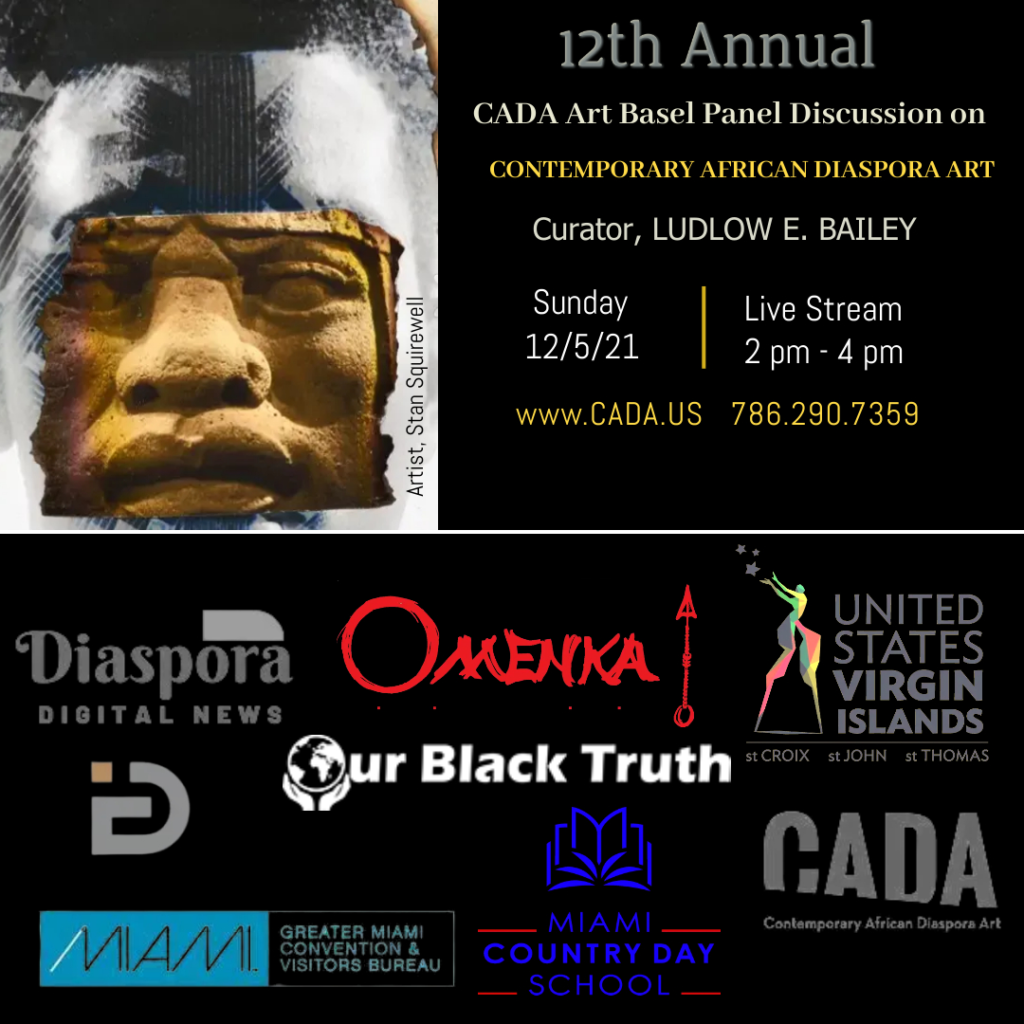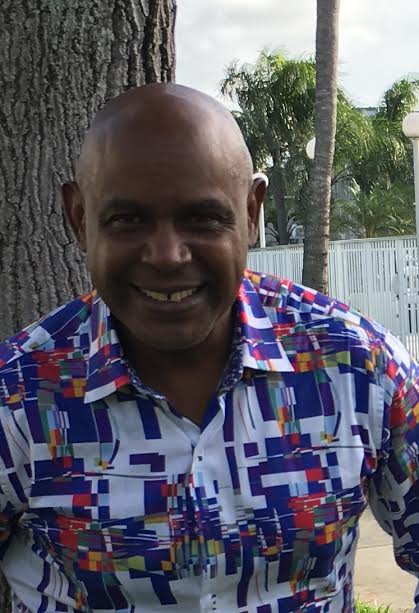
An inspirational Story by Sonia M. Wignall
As our plane accelerated high above the Island of Cuba, little did I know that it would be 36 years before I would visit the Island again, or see my mother again. I was 3 years old.
The Island I was leaving behind was the golden playground of the Caribbean. It was known for its rhythm, sugar cane, music, beautiful beaches, exotic people and dynamic nightlife.
That Island however, was about to become a desert place where meeting the most basic of human needs would be a struggle. This beautiful Island of many diverse colors of people, fully integrated and loving life would soon become the poster child of communism, fear, whispered tones, Government takeover, scarcity of food and other necessities. The country that was once considered an ally of the Island would initiate what would seem like a “never ending embargo”.
This knowledge was unbeknown to us girls. My father, who had his ears to the ground anticipated the change and chose to neither experience it himself, nor allow us to experience it either. Like all the other Cubans before us, we were leaving the island in just the nick of time with the few items we were allowed to take with us.
My father, a well-known Cuban “Sapatero”, (shoe maker), was able to navigate our exit from the Island, the same way he had helped many other Cubans. He had developed a process of removing the inside base from duffle bags and creating a hidden compartment for money, papers and jewelry. So, not only did our duffle bag have that hidden compartment, but our clothing also. The soles of our shoes became illegal money carriers. Today we would be considered smugglers.
My father was a genius leather craftsman, who had honed his skills through 20 plus years of service to wealthy Cuban customers on the Island. During those days he made and repaired shoes, bags, and other accessories with only the finest of leather available on the market.
My journey to freedom would first land the three of us in Jamaica, at the home of one of my Father’s sisters for 2 years. We then continued on to the US where established family and friends welcomed us. This is where we would seek permanent residence. We moved into another aunt’s home in a community where immigrants of color, like us, lived. We lacked nothing. All the support and resources we needed, we received.
Practicing Independence
By the time I turned 6 years old we finally had our own place and my father became a full-time single dad. We took up residence in a tenant building, within walking distance to my father’s shoe repair shop. At home, my sister and I learned to stomp our feet before turning on the kitchen light lest we see the mice in action when the light came on. In the years we lived there, this practice never changed and I hated every minute of it. To this day, I dislike dirty kitchens, food garbage, or any overnight garbage in the home.
With my father busy in the shoe and leather business my sister and I, 9 and 6, respectively took on shores and responsibilities that paved the way for our “new culture” of survival, and independence. We grocery shopped, cooked, made household decisions, cleaned, did laundry, travelled on buses and trains alone, shopped for our own necessities, cared for ourselves. We practiced a child’s measure of self-discipline.
Although we were young, by most standards, this became our normal way of life. During this period, I longed for a mom, and a home life like most children my age. I had to settle for help from my father sisters living in the United States. I forged ahead not focusing on the caretaker void that was missing in my life. It would be 30 years later that I would visit the Island of Cuba, with the sole intent of taking my mother out. my mother left the Island of Cuba, approximately one month after my visit. She has never returned.
THE DREAM
A dream that never left my heart was to leave the neighborhood where we lived. I wanted to live in and experience a more beautiful community.
That opportunity came at 16 years old. I was able to leave the City of New York for College life on the campus of Stony Brook University, Long Island, New York. There I would make “lifelong” friends and fall madly in love with the man of my then dreams. With a joint vision in tow, we were married 4 years, and unfortunately divorced 4 years later.
Pursuit of Passion
After graduating from College, I worked for several different corporations. It was not however, until I left corporate life, several years later, that another passion unfolded. Like my dad, my hero, I became an entrepreneur, and never looked back.
The freedom was exhilarating, the pressure to “be a specific way” in order to be accepted and acknowledged was too stressful. The office politics was never ending, no matter how hard I tried, I was never able to conform to the very narrow systems of operations. Finally, as a true independent, I was basking in the reality of the unlimited opportunity before me.
So much like the Island our family left behind, the corporate structure of performance, politics and personal limitation was confining.
I had not only tasted freedom, but my journey from Cuba, to this point had well prepared me to be independent, responsible, and me to face many challenges without fear. I blossomed into a resourceful, resolute and determined woman. Unlimited possibilities became my ceiling.
I entered the Executive MBA program at the University of Miami, and added 21 credit hours of graduate study to my BA degree.
Many years later my desire to create the same diverse, independent and unlimited learning opportunity for my son led me to become a full-time “homeschool mom”. During this period however, homeschooling was considered primitive, antisocial at best, and certainly out of the norm. At times it was even considered unacceptable and a “little weird”.
Little did we all know that one day, the academic practice that was a norm to many families like ours, would become the worldwide norm in 2020 when the entire global school system went viral in the course of a 24-hour span in response to Covid 19 lockdowns.
The weird and unacceptable had finally become the normal and the necessary. We flung open the doors and welcomed them to our “weird and unacceptable” world. A world where as they struggled to adjust and pivot, we the “weird homeschool” community never skipped a beat. We and our children were well prepared.
Unfortunately, however, as the reality of the changes settled in, many parents globally were in distress about having to actually participate or be responsible for their children’s education.
The Foundation
I often wondered if my decision to homeschool 21 years earlier was prophetic. Although my son is now an entrepreneur and a 2nd year Engineering student, I felt the call to go back into the education space and give back. I was actually both appalled and saddened by many of the parents’ responses to the academic shift. Many parents saw their children as burdens to be put away several hours a day. Many others did not understand or care that the education of their children is a highly life integrated and participatory process.
Based on the extraordinary needs for expertise in homeschooling and the difficult adjustment families were having in response to the change, my business partner and I began discussing ways to give back and to help.

Focus on Education
We started by developing a series of “Educational Panel Discussions” centered around alternative learning systems and available resources. The series emphasized the importance of parental involvement and the sacrifice that it takes. It also opened the door for discussions about the “dire” state of education for “children of the African Diaspora globally”. The statistics were grim, our children were failing and at risk in every academic, and self-development area. STEM, (Science, Technology, Engineering and Mathematics), education was limited and, in many instances, not available. Educational biases, racial profiling and failure to support our children was the norm. There were cultural issues, and lack of training and or exposure in the area of reading comprehension and financial literacy.
Globally our children were dropping through the cracks. They were being prepared to participate in a cycle of poverty, poor mental health and stagnation”. We took our personal discussion to another level, and made the commitment to get directly involved. Out of that commitment the
Diaspora Global Foundation, a 501(c) (3) was born.
THE MISSION
Our Foundation’s mission is to prepare our children for market participation and leadership, by supplementing their education in five core areas: Reading, Culture, STEM, Self-Development and Financial Literacy. Our service market is US, Africa and the Caribbean. We work with communities and children from the African Diaspora. Our sources of funding and partnerships are global. We believe that there are many children worldwide if given the tools, training and opportunity will make great contributions to our future. We must start small working collaboratively both locally and internationally.
I realized that my own son, like many other children, is on the right path
He is fully supported. Unfortunately, there are millions of children globally with absolutely no foundation underneath them, and no sustainable path cleared for them to move forward successfully.
When I engage in the work of the Foundation, I can actually feel it deep in my soul. I get overwhelmed when I consider the magnitude of the needs of our children and the great divide before them. These children are our future. We have all participated, knowingly or unknowingly, in perpetuating the divide of the have and have nots. Now we must collectively participate in the investment of their future.

THE GLOBAL MARKET
With such a large and expanding global monetary system (According to the US Treasury Department, “the SWIFT international payment network handles more than $1.25 quadrillion dollars per annum, CHIPS transfers $400 trillion dollars, while Fedwire moves $900 trillion”). Our planet and eco systems will not be spiritually, educationally, financially, or socially aligned if a great number of our children continue to track behind and cannot fully participate.
The majority of our business dealings are now global. That means cross cultural systems, global collaboration, travel, and practiced integration. Partnerships, alliances and global problem solving. With so many hands needing to be on a diverse cultural deck, how can we be so naive to think that we can leave valuable, and talented members of our global system behind and continue to prosper, grow and expand.
Market participation starts with education, and education begins in the home, and is practiced in the community. Investing in the education of all of our children is one of the wisest investments we can make. That level of investment will sustain us globally and create the infrastructure that will produce the greatest rate of return for generations to come. Although AI, (Artificial Intelligence), will give data and understanding, it is the human factor that leads in the generation of creativity and innovation.
This was the mission of my Father’s journey. He started it with us. He freed us, trained us, encouraged us, so that one day, we would be positioned to teach others how to navigate their road to freedom. For my father’s love, commitment, sacrifice and journey. I will forever be grateful for the path of “freedom” he set before me.

For more information on the foundation, kindly visit our WEBSITE.
By: Sonia M. Wignall
All images used with the full permission of Sonia M. Wignall and the Diaspora Global Foundation.
RELATED STORIES







